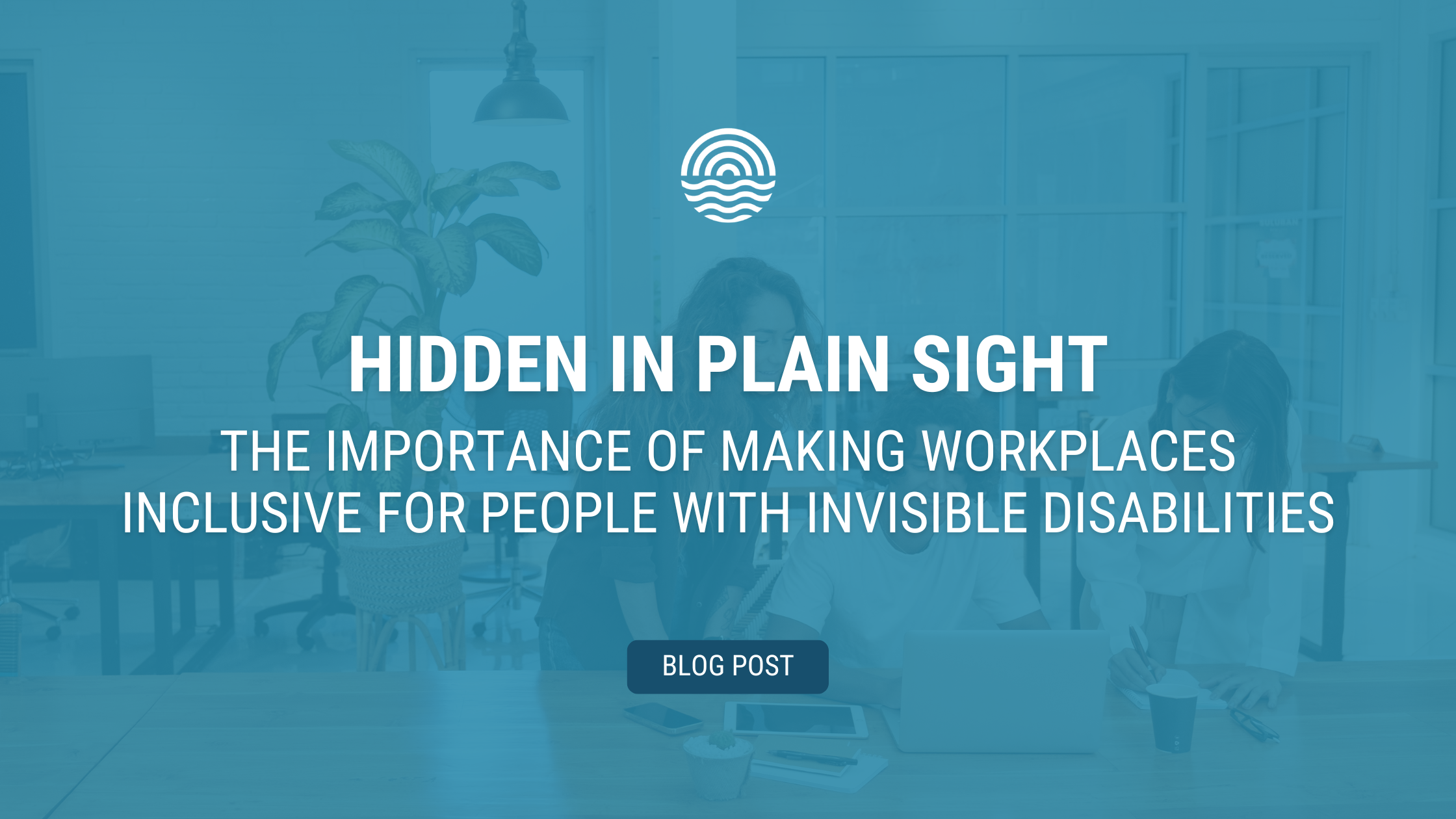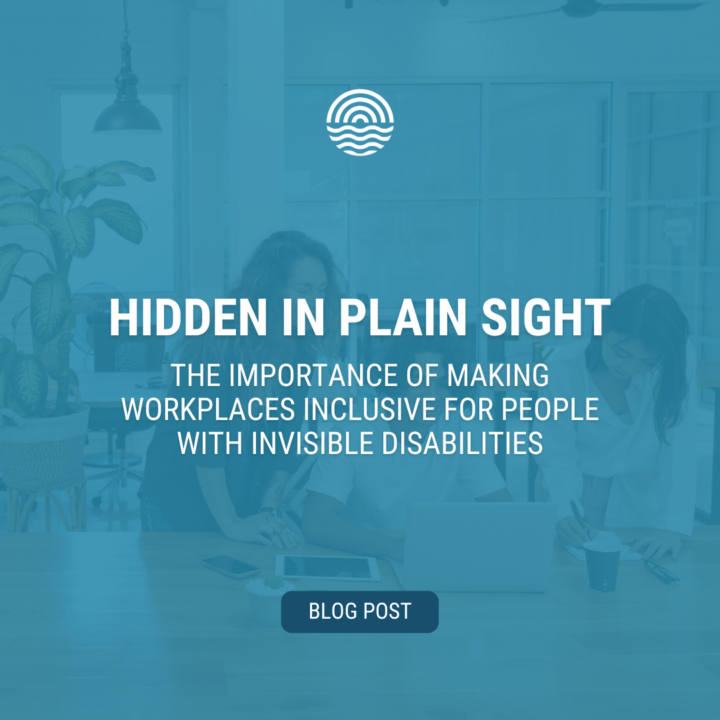
BLOG POST
Hidden in Plain Sight: The Importance of Making Workplaces Inclusive for People with Invisible Disabilities
Invisible disabilities, often referred to as hidden disabilities, are conditions that significantly impact a person’s daily life but may not be immediately apparent to others.
These can include conditions such as chronic fatigue syndrome, autism spectrum disorder, mental health disorders, and chronic pain.
Despite being invisible, these disabilities can pose significant challenges in the workplace, and it’s essential to create an environment that is accessible and inclusive for all employees.
Why is Workplace Accessibility & Inclusion Important for People with Invisible Disabilities?
- Enhanced Productivity: When employees with invisible disabilities feel supported and accommodated, they are more likely to be productive and engaged in their work.
- Improved Morale: A workplace that is inclusive and accessible can boost morale among all employees, creating a positive and supportive work environment.
- Ensuring Employees Feel Supported: Research shows that 88% of employees with hidden disabilities choose not to disclose their disability at work to avoid discrimination and stigma. Making your workplace accessible and inclusive can help employees with invisible disabilities feel comfortable requesting any accommodations they may need.
How to Make Your Workplace More Inclusive for People with Hidden Disabilities
- Raise Awareness: Educate your team about invisible disabilities and accessibility in general, and the challenges they can pose in the workplace. This can help to reduce stigma and discrimination.
- Flexible Work Arrangements: Consider offering flexible work arrangements, such as remote work or flexible hours, to accommodate employees with invisible disabilities.
- Accessible Technology: Ensure that your workplace has accessible technology, such as assistive devices and software, to help employees with invisible disabilities perform their jobs effectively.
- Clear Communication: Encourage open and honest communication with employees so that they may feel comfortable approaching you about their needs and how your organization can best support them.
- Inclusive Policies: Develop and implement policies that promote inclusion and accessibility for all employees, regardless of ability.
- Create a Supportive Culture: Foster a workplace culture that values diversity, inclusion, and respect for all employees. This starts at the top – it’s important to champion DEI initiatives and advocate for positive change from leadership positions.
Examples of Accommodations for Invisible Disabilities
- Adjusting Workload: Reducing workload or adjusting deadlines for employees with chronic fatigue or pain.
- Providing Quiet Spaces: Creating designated quiet spaces for employees who need a calm environment to focus.
- Flexible Scheduling: Allowing employees to adjust their work schedules to accommodate their unique needs.
- Offering Support: Providing access to mental health counselling or support groups for employees with mental health conditions.
Remember: the journey towards a more inclusive workplace is ongoing. By taking concrete steps to accommodate employees and promote inclusion, you can demonstrate your organization’s commitment to advancing DEI in your workplace and within the maritime industry.
Looking for support advancing accessibility in your workplace? Not sure where to start? We’re here to help!


